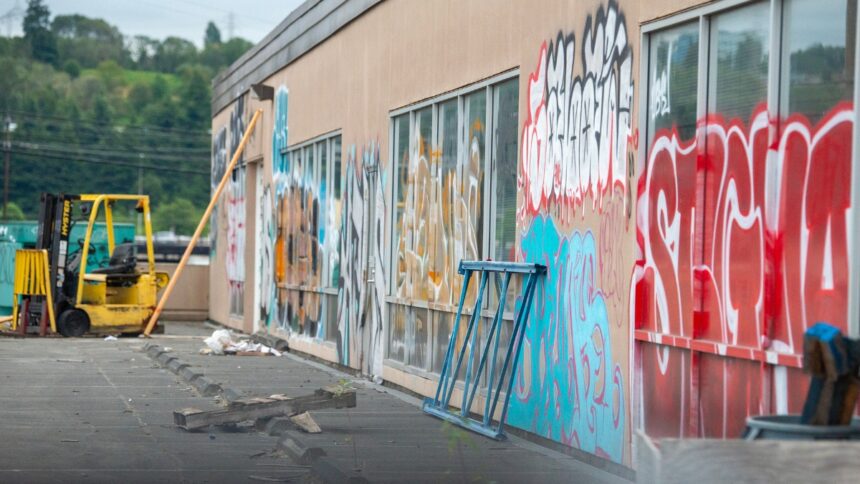Civil fine option aimed at deterring property crimes
Today, by a 7-1 vote, the City Council approved a new amended ordinance to combat graffiti on a new level, on both public and private property throughout Seattle. The legislation, sponsored by Public Safety Chair Bob Kettle (District 7) and proposed by City Attorney Ann Davison, would make graffiti taggers subject to a civil penalty of up to $1,500 per violation, and could hold them liable for the cost of graffiti cleanup. In 2024 alone, there were 28,816 reported instances of graffiti vandalism in Seattle with city cleanup costs estimated at $6 million a year.
“Combatting graffiti is just one piece of a strategic framework that guides this Council in its approach to keeping our community safe,” said Public Safety Chair Kettle. “Along with police hiring, legal tools, safeguarding public health and working with local and state partners, mitigating graffiti is one of the pillars on which we can build a safer, stronger public safety foundation.”
“This isn’t about art, it’s about tagging which is one of the most common complaints I hear from constituents but it’s an offense that is very difficult enforce,” said Council President Sara Nelson (Position 9), who co-sponsored the legislation. “I thank City Attorney Davison and Councilmember Kettle for advancing this additional tool to not only deter taggers, but to relieve the costly burden of remediation for small businesses, property owners and the city.”
Background
The City Attorney’s Office (CAO) and Executive indicate that graffiti cleanup of a single graffiti “tag” often exceeds $750, with other incidents costing considerably more. Although felony charges for graffiti tags (above $750) have been prosecuted, prolific known taggers have plead guilty to lesser charges, diminishing the deterrent value of criminal convictions. In addition, CAO data shows that only 11-percent of misdemeanor graffiti cases result in a conviction.
Private property owners have the ability under state law to seek reimbursement for costs related to illegal graffiti. However, it is rare for businesses to invest the time and effort required to pursue compensation.
What the legislation does
Council Bill 120995 allows the CAO to bring civil actions against prolific taggers, with the potential to receive some restitution and for graffiti-related property destruction. They would also remain subject to criminal penalties.
Taggers would not be subject to these provisions if they obtained the express permission of a private property owner prior to applying the graffiti.
What’s next
The legislation goes to the Mayor’s office for final signature. Amendment D, which passed 6-2, allows the City to retroactively file new civil actions for up to three years after the ordinance’s effective date.
Additional quotes
“Council’s vote today sends a clear message: Seattle’s tolerance for illegal graffiti has expired. Stop vandalizing our city or we will hold you accountable. There are many prolific illegal taggers and once the ordinance becomes effective, I will be filing lawsuits. Since the fines are imposed for each violation, it should serve as a big wake-up call to those who deface Seattle.”
– City Attorney Ann Davison
“This legislation is another tool available to us to help remove tags and beautify the city, ensure those that are causing damage are held accountable, and continue expanding opportunity for artists to leave their mark through art that reflects the people, culture and experiences of our communities.”
– Mayor Bruce Harrell
# # #


